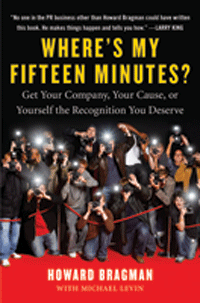What would the Oscars be without the after-parties? What would the presidential inauguration be without the series of gala balls across the nation’s capital? And what would a five-year-old’s birthday be without friends, a birthday cake, and pin the tail on the donkey? Or, in Hollywood, a performance by Beyoncé? Everybody loves events. So what’s the difference between a party and an event? We throw a party to celebrate something, or to just get friends together and have a good time. By contrast, an event is an opportunity to get a message out. And that’s why events are staples in the world of PR. I want to share with you the approach to event planning that the entertainment industry and major corporations use, and I’ll show you how to adapt these same approaches to your own marketing campaign.
Hollywood, a performance by Beyoncé? Everybody loves events. So what’s the difference between a party and an event? We throw a party to celebrate something, or to just get friends together and have a good time. By contrast, an event is an opportunity to get a message out. And that’s why events are staples in the world of PR. I want to share with you the approach to event planning that the entertainment industry and major corporations use, and I’ll show you how to adapt these same approaches to your own marketing campaign.
First, let’s ask why you would want to consider going to the expense and trouble of putting on an event in the first place. Here are some reasons:
1. It’s what we call a “publicizable moment.” This means that you can get media attention before, during, and after your event, garnering for your message repeated exposure to the constituencies you want to hear it.
2. It’s a great way to introduce people to something. If you’re offering a new product or a new ser vice, or you’re moving to a new office, or you’ve got a cause or a charity to promote, an event is a great way to focus the attention of everyone in your community on your offering.
3. It’s a great way to get people together. When you’ve got all of your supporters under one roof, you create extraordinary opportunities for networking, synergies, and empowerment. Perhaps the people who feel the same way you do about your cause have been under the mistaken impression that they are toiling alone. When you bring them all together, they get energized simply from the sight of so many other people who believe in the same mission or cause.
4. Events motivate people. An attractively and appropriately produced event gets a buy-in from people who become your volunteers, board members, donors, sponsors, or supporters. An event shows that you’re serious about your cause, and that you are willing to put in the time and effort it takes to get it on the map. A solid event committee will live on and do good work long after the event is over.
5. It’s a public platform for you. It’s an opportunity for you to tell the world what you have done…and what you want to do. If you engage the media properly—and we’ll talk about how to do that—you can focus enormous attention on your goals.
6. You can raise money. There’s nothing like a well- produced event to motivate people to get out their checkbooks. Practically anything that we want to accomplish in the world takes money, and demonstrating effectively and sincerely the value of your mission is a great way to tell your story to potential donors.
7. It’s an opportunity to honor people. Why do so many fund-raising events honor particular individuals, whether they are donors, celebrities, or individuals who have demonstrated a long- term commitment to a cause? It’s not just because they buy a lot of tables for their friends. It’s because people like to be honored and respected for the hard work they have done. It’s only natural. A high-profile honoree is also newsworthy, so this is a great way for you to recognize people for what they have done and also get news of that recognition (and your cause) out to the world.
Excerpted from WHERE’S MY FIFTEEN MINUTES?: GET YOUR COMPANY, YOUR CAUSE, OR YOURSELF THE RECOGNITION YOU DESERVE by Howard Bragman with Michael Levin by arrangement with Portfolio, a member of Penguin Group (USA), Inc., Copyright (c) Where’s My Fifteen Minutes, LLC and Michael Levin, 2008.
Howard Bragman is the keynote speaker at our PR News Media Relations Forum on March 10, 2009 in Washington D.C.
